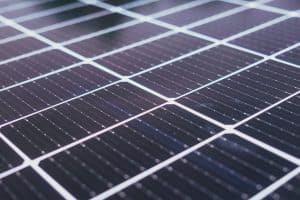
Cleaning windows is an essential part of keeping your home or business looking clean. But if you are constantly struggling with water spots, you might need to try something different than regular glass cleaners.
Water spots are mineral deposits that form when hard water containing minerals like magnesium and calcium evaporates. When left unattended, these spots can become baked on and difficult to remove.
Vinegar
One of the most common and effective natural window cleaning solutions for removing hard water spots is vinegar. Specifically, white distilled vinegar is the best type of vinegar for this purpose because it has high acidity levels and cleaning properties that are effective at removing mineral deposits. Vinegar can be used alone or combined with other natural cleaning ingredients, such as essential oils, to create a more customized and pleasant-smelling cleaner.
To use vinegar to remove water spots from windows, simply fill a spray bottle with equal parts water and vinegar, then apply the solution to the glass. After allowing it to sit for several minutes, gently wipe away the solution with a clean cloth or paper towel. Vinegar is a strong and safe cleaning agent that can be used on most types of glass, including car and home windows.
If you don’t have any white distilled vinegar on hand, lemon juice is another good substitute for this purpose. Like vinegar, lemon juice has high acidic content and cleaning properties that are effective at removing hard water deposits. In addition, lemon juice performs particularly well on newer, less stubborn hard water stains.
For stains that are more severe or have been present for a long time, you may need to use something more abrasive. In this case, a baking soda solution may be the perfect solution for you. Baking soda has a similar chemical makeup to the citric acid found in lemons and the overall composition of rubbing alcohol, so it is an ideal abrasive for targeting and dissolving hard water deposits.
Another great alternative to using vinegar for removing water spots is regular toothpaste. While this option may seem odd, toothpaste is a powerful and effective abrasive that can break up and dissolve the mineral deposits that cause hard water stains on windows. To use this method, mix a bit of water with toothpaste and scrub the stains on your window. When the stains are gone, rinse and dry the window with a towel or piece of lint-free paper. If desired, you can also use a wax coating to help protect your windows from future mineral build-up.
Lemons
Lemons are a kitchen staple for everything from adding flavor to your favorite dish to brightening the skin, but these tart fruits also double as household cleaning powerhouses. Thanks to their naturally occurring citric acid, they’re excellent for dissolving alkaline water spots and other stubborn buildup. Plus, their refreshing scent is a pleasant alternative to the sometimes harsh chemicals found in many traditional cleaners.
In fact, lemons are so effective at removing hard water stains that you can even apply them before washing your windows. Simply spritz the juice onto your window and let it sit for a minute or two, then wipe away with a dry cloth or paper towel. You may need to repeat this process if the spot is particularly stubborn.
Another great way to use lemons for removing water spots is to mix the juice with water in a spray bottle and apply it directly to your glass surface. You can also soak a clean cloth or paper towel in the solution and wipe your window in a circular motion. Just be sure to rinse and dry your cloth frequently to avoid streaks.
Using lemons to remove water spots is especially helpful for glass windows in high-rise buildings, where water spots can occur more frequently due to the lack of natural ventilation. Not only does this method make the job easier, but it helps to protect and extend the life of your windows by preventing mineral-based damage.
If you have a lot of hard water spots on your windows, they’re likely to etch into the glass and leave permanent marks. This can affect the appearance and functionality of your windows, so it’s important to address them swiftly to prevent further deterioration. Prompt removal of stains can also help to preserve the integrity of your windows’ seals and trim, which is necessary for a long lifespan.
Stained windows are more than just an eyesore — they can also reflect poorly on your business or home, and drive away potential customers. If you’re struggling to get rid of hard water spots, consider booking a service for window cleaning santa rosa. They offer top-notch results, leaving your windows spotless and streak-free with minimal effort on your part.
Toothpaste

Whether you’re in a commercial space or at home, clean windows are essential. They allow natural light into a room and elevate a property’s appearance. Unfortunately, if not cleaned regularly, they can become streaked with hard water spots. These mineral deposits are not only unsightly, but they can also damage the glass. Luckily, you can easily remove hard water spots from windows with household items that are inexpensive and readily available.
Vinegar, lemon juice, baking soda and non-gel toothpaste are all effective at removing tough stains from windows. Just dampen a cloth with one of these solutions, then rub away the stains and rinse. A squeegee can then be used to wipe off any remaining residue and leave the window streak-free.
White vinegar is a great solution for tackling tough stains and works well as an initial treatment before trying the other household remedies. If the stains persist, you can try other household items that are often found in bathroom cabinets.
Toothpaste contains a mild abrasive that can break down and dissolve the minerals in your teeth and, thus, help with removing hard water spots from windows. To use, squirt a small amount of the product onto a soft cloth and rub it over the stains. Leave it for up to 10 minutes and then rinse the window with water. Afterwards, the window can be wiped dry and polished with a squeegee for a sparkling finish.
Another easy option for removing hard water stains from windows is rubbing alcohol. This jack-of-all-trades product can be found at most hardware stores or drugstores, and it’s ideal for removing stubborn marks from a variety of surfaces, including windows and mirrors. Just mix a 1:1 mixture of water and rubbing alcohol, then apply to the affected area using a soft cloth or sponge. Rinse and dry the window to ensure there’s no residual alcohol.
Liquid Ammonia
Ammonium hydroxide is a clear, colorless liquid under pressure. It has a sharp, suffocating smell and is dangerous if swallowed or inhaled. It is also a powerful irritant and can damage skin and mucous membranes. It is highly flammable and should only be used in well-ventilated areas. Liquid ammonia is also toxic to the environment, and can cause oxygen depletion in water systems, resulting in the death of aquatic life.
Fortunately, there are a few home remedies that can easily remove hard water spots from your windows. Vinegar, toothpaste, rubbing alcohol and even commercial cleaners can all help get your glass spot-free. If these DIY methods aren’t working, you can hire a professional to clean your windows.
In addition to removing water spots, these cleaning products are also effective for removing smudges, greasy fingerprints and smoky residues left by cigarette smoke. They can be purchased at most hardware and home improvement stores.
Although it is not as effective as vinegar, liquid ammonia can still be useful for removing stubborn stains and streaks from your glass surfaces. Soak a towel in the solution and wipe down your windows. Then rinse the window thoroughly with clean water and dry it with a lint-free cloth or newspaper.
Another option for removing water spots is to use a mixture of four parts water to one part rubbing alcohol. Wipe the mixture onto your windows with a towel and then rinse thoroughly. This method is quick and easy to implement, and it can remove mild water stains.
Regardless of which method you choose to remove your hard water spots, it’s important to act quickly. The longer you let these deposits sit, the harder they will be to remove. To prevent future deposits from forming, it’s best to keep a spray bottle of either vinegar or ammonia close by your washing machine and dishwasher. That way, you can quickly eliminate any water spots that appear as soon as you’re done with your wash or cook-up. Ultimately, you’ll have cleaner, more smudge-free windows.







